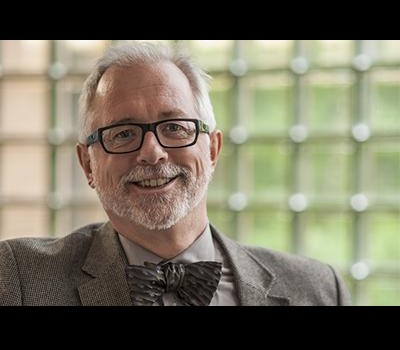Nova Scotia’s Clinical Frailty Scale used world-wide when making decisions about treating frail patients with COVID-19

Ken Rockwood, geriatrician and leading expert in frailty at Nova Scotia Health.
By Deidre Taylor
During the height of the first wave of the COVID-19 pandemic, health systems globally were put in the difficult position of developing criteria to ration access to critical care as large numbers of patients were admitted to hospital with life-threatening symptoms caused by the virus.
“Decisions needed to be made as to which patients should receive treatment in intensive care units,” said Dr. Kenneth Rockwood, a geriatrician and leading expert in frailty at Nova Scotia Health.
“A number of countries began referring to our Clinical Frailty Scale to help inform this decision, rather than relying on a set age as a cut-off point.”
However, the Clinical Frailty Scale was developed before COVID-19.
Dr. Rockwood developed the Clinical Frailty Scale in 2005 to assess a person’s level of frailty, which then would inform their treatment.
The scale originally was intended to be used by geriatricians as part of a comprehensive geriatric assessment of their patients, and is also commonly used in emergency departments as the basis for both screening and assessment.
When Dr. Rockwood learned that his Clinical Frailty Scale was being used to classify COVID-19 patients in countries around the world, he took a deeper look at the frailty levels and how they relate to people with COVID-19.
“Last March I started getting calls from all around the world as health care providers and administrators began adopting the scale. They were identifying mild frailty (level 5 of 9 on the scale) as the cutoff, for whether a patient with COVID-19 should receive treatment in the ICU,” said Rockwood.
“Essentially they were saying that anyone with that score might not have a good outcome, and I had some recent data that suggested that this determination was much too low.”
He and his colleagues were just about to publish a study with data from more than 1,000 older adults he had seen in the emergency department at the Halifax Infirmary, part of the QEII Health Sciences Centre.
The study had looked at a patient’s chance of dying within a 30-day period after experiencing an acute illness (that resulted in a visit to emergency).
The results of the study showed that most people with mild frailty (level 5) or moderate frailty (level 6) could be effectively supported through a severe acute illness.
Additionally, he combined his findings with what another researcher, Dr. Lisa Barrett, an infectious disease specialist at Nova Scotia Health, was seeing as part of a study that is currently taking place at Northwood.
“Dr. Barrett was finding that severely and very severely frail patients – level 7 or 8 on the frailty scale –were able to mount an immune response following exposure to the virus, so they never actually caught it,” said Rockwood. “This demonstrates that a person’s immune system can be robust even with frailty, which changes the discussion of rationing care in health systems experience crisis.”
Based on results from the study from the emergency department and Dr. Barrett’s findings, Dr. Rockwood was able to inform the decision criteria that countries were having to put in place about providing or withholding treatment for frail patients with COVID-19.
With such rapid uptake of Rockwood’s Clinical Frailty Scale, he saw an opportunity for further research. He received funding last year from the Fountain Family Research Fund through the QEII Foundation.
In partnership with Dr. Olga Theou, a Canada Research Chair at Dalhousie University and an affiliate scientist with Nova Scotia Health, they set up a study at 23 sites in 11 countries to validate an algorithm that has been developed for health care providers, who are not experts in frailty, to effectively use the Clinical Frailty Scale.
Their research team has also leveraged this funding to obtain additional peer-reviewed evidence plus other funding and personnel to enable a successful research program.
“The research funding that we have received supports work that is having a global impact, and puts Nova Scotia as a leader on the world stage,” said Rockwood.






